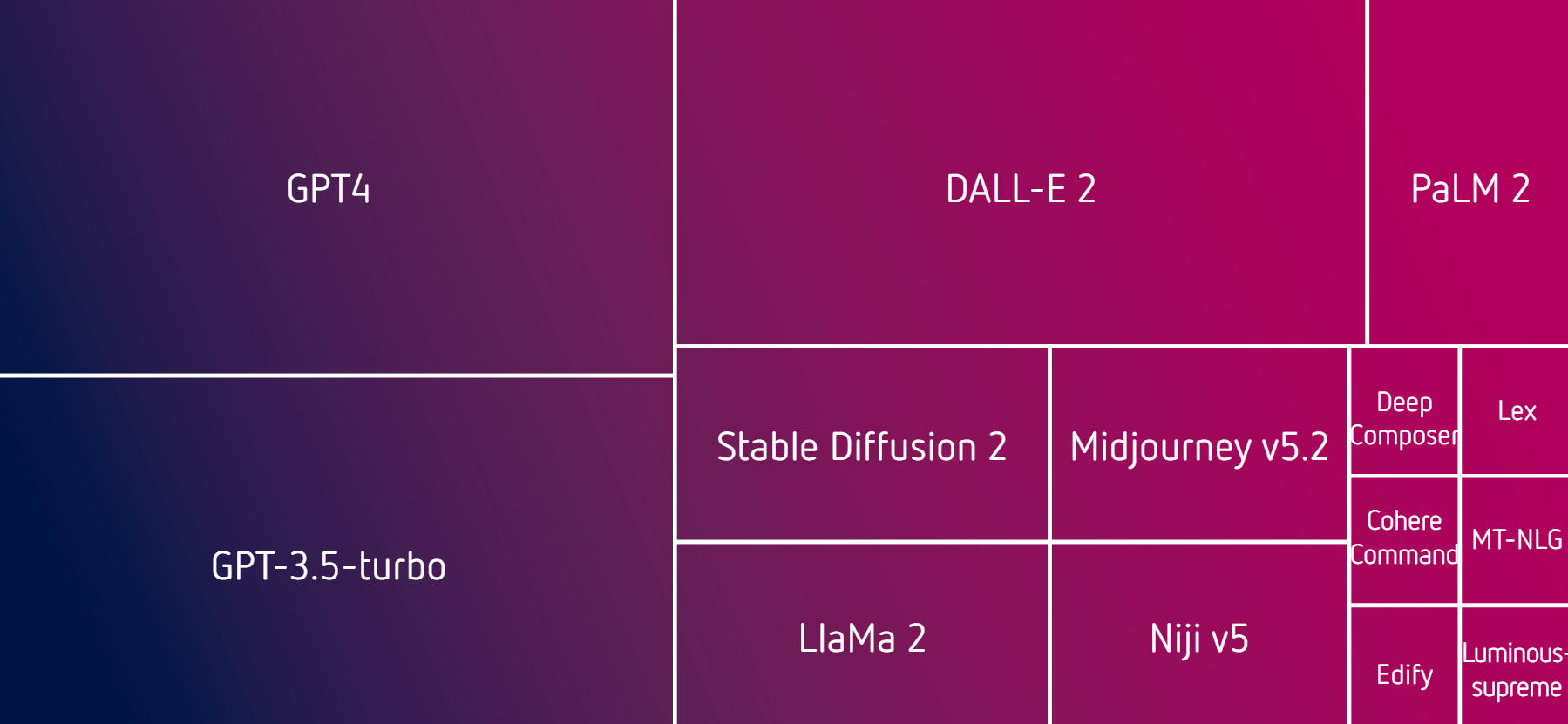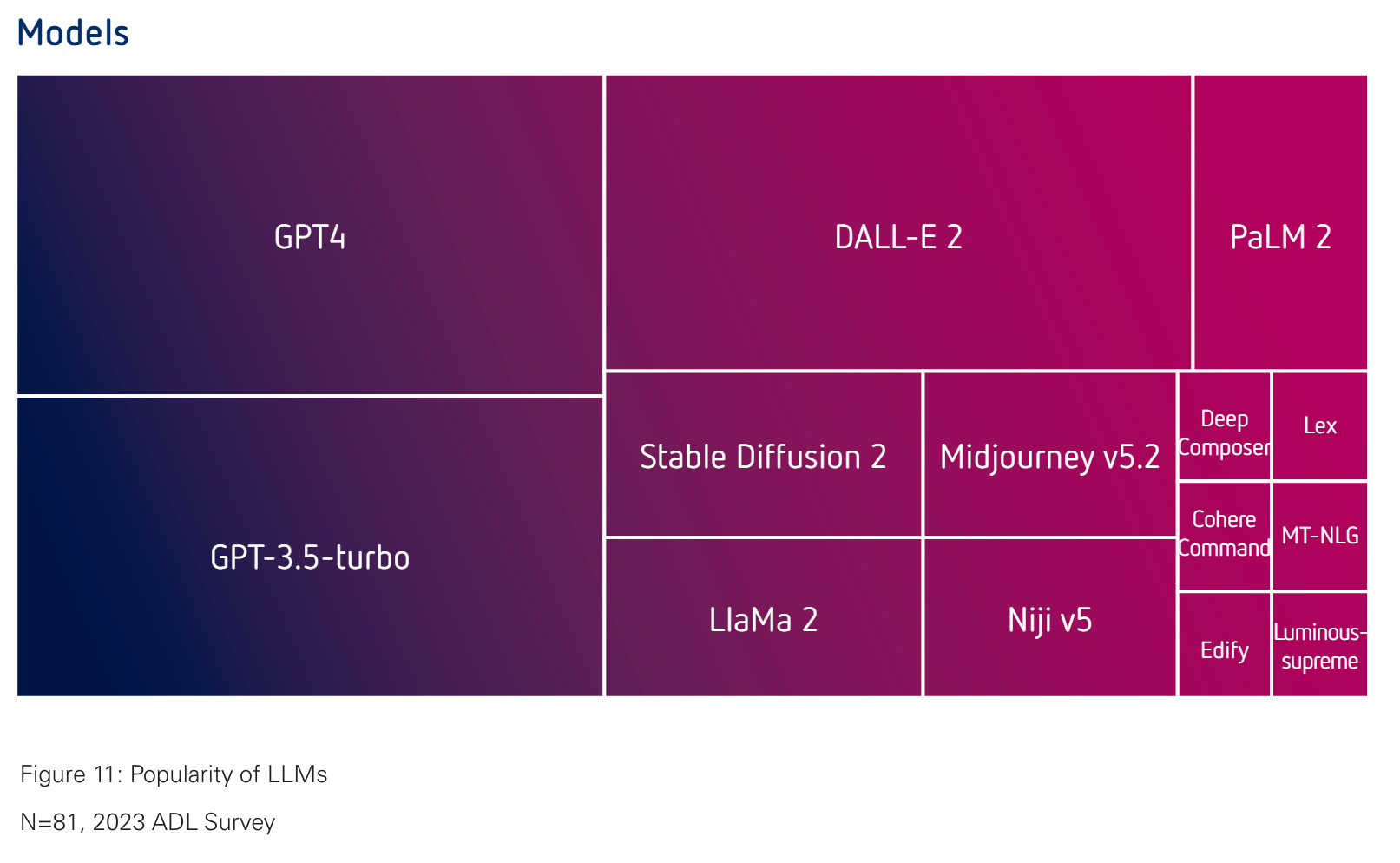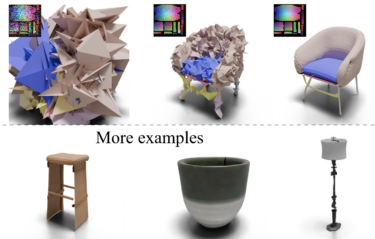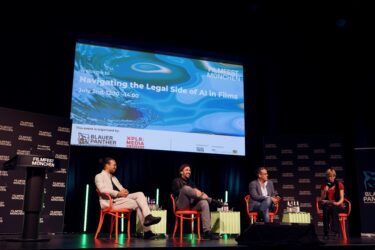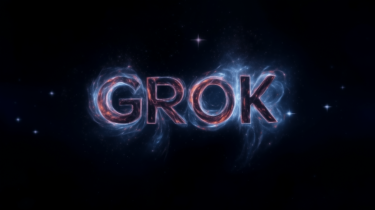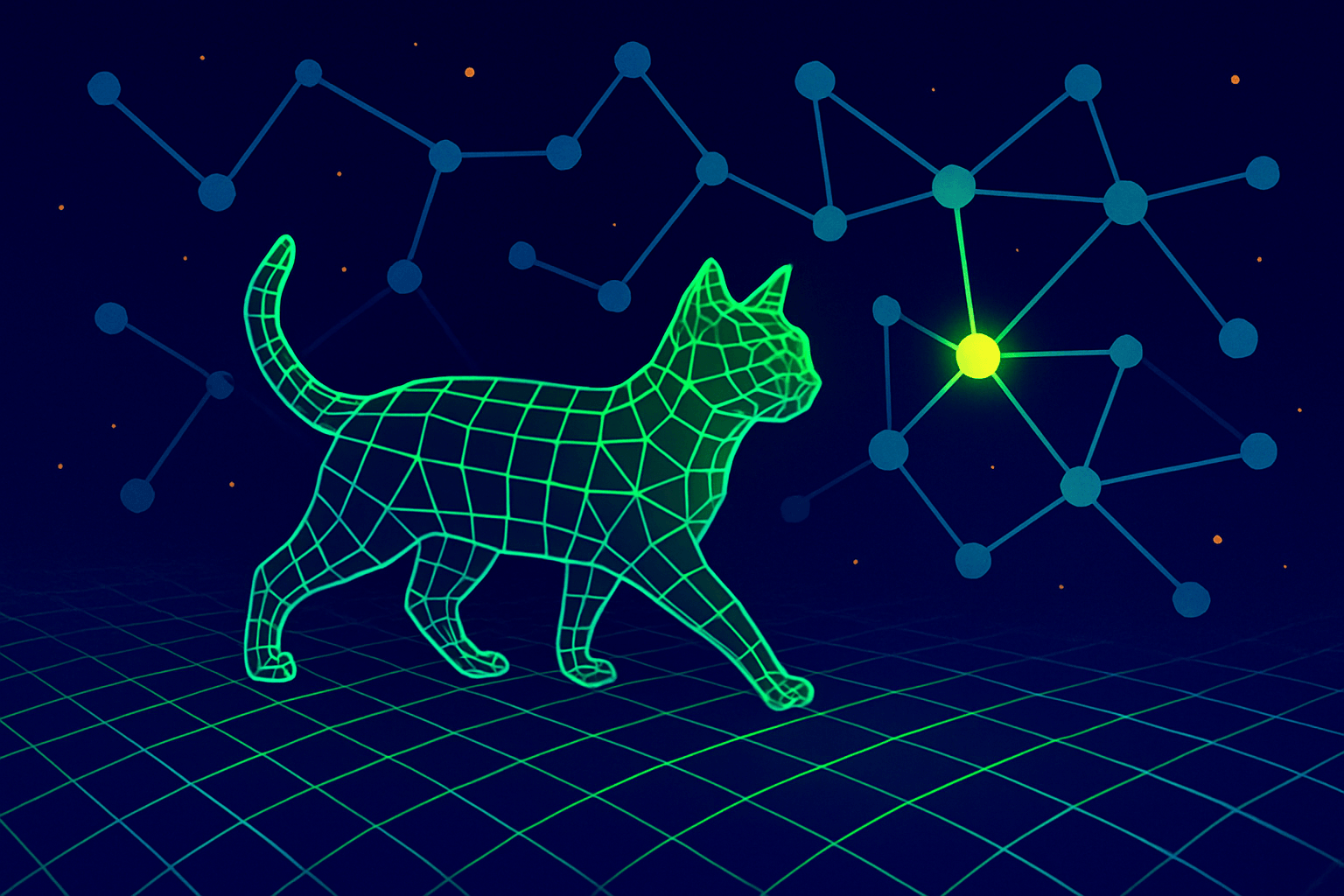Generative AI is increasingly being used across the entire value chain of media companies. A study by Arthur D. Little for Bertelsmann looks at the current state of experiments and offers a view of what might come.
From June to September 2023, the consulting firm looked at more than 200 uses of generative AI from over 60 tech companies, including tech giants and specialized providers. Well-known examples include ChatGPT for text generation and Midjourney for image generation.
The study examined the use of such systems in broadcasting, music, marketing, and publishing. According to ADL, companies in all sectors are testing how generative AI can speed up work, generate new content, and enable new services.
According to the study, AI applications are most prevalent in broadcasting, entertainment, and news. The systems are used to help write scripts, news stories, or create images, and to enable new applications such as personalized storytelling. In post-production, generative AI tools are used for voice cloning, effects, content summaries, and localization.
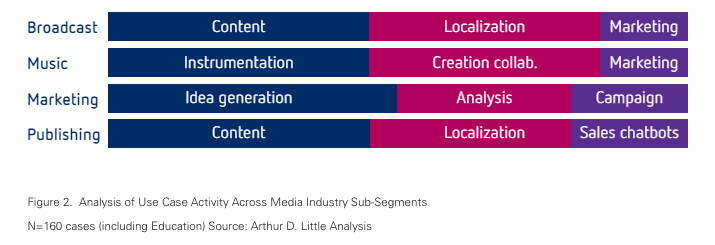
Key players include Disney, Netflix, YouTube, Reuters, and Fremantle, the study says. OpenAI, Runway, Midjourney, and Synthesia are cited as key technology companies.
In marketing, generative AI tools promise greater efficiency and creativity. It's supposed to help generate ideas and ads or automate entire campaigns. ADL lists the agencies of advertising giants Omnicom, WPP, and Stagwell as top players. They are working with Microsoft, Nvidia, AWS and Google.
According to ADL, there are also promising applications for Gen AI in music, such as composing, producing, and marketing. Universal Music, for example, is working with the AI platform DAACI to create music. But overall, music companies are still cautious and working to handle the technology and copyrights responsibly.
The study says publishers still have limited hopes for AI. There are uses like writing help, translation, and marketing copy. But in general, the industry is still in a testing and exploring phase.
ADL says US companies are leading on the provider side. Most of the uses looked at are based on models from OpenAI, Meta, Google, Anthropic, and Stability AI. But many media companies also try to train their own specialized Gen-AI models with their data.
In many media sectors, the technology is still new. The authors see future potential for new, AI-based media products such as personalized and interactive videos, books, and music experiences. However, along with tech advances, this also requires carefully handling ethical challenges and rules.
